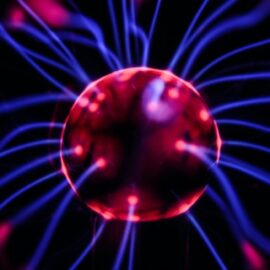
This is a free excerpt from one of Shortform’s Articles. We give you all the important information you need to know about current events and more.
Don't miss out on the whole story. Sign up for a free trial here .
Do people have free will? How is the belief in free will harmful to society?
After 40 years of study, neurologist Robert Sapolsky says there is no free will. He lays out what a world that doesn’t believe in free will would look like, and how it would impact the criminal justice system.
Here are the arguments for and against free will, and why Sapolsky thinks believing in free will is harmful.
One Scientist’s Answer to an Ancient Philosophical Question
Do people truly have free will? It’s a question that Plato and Aristotle discussed millennia ago, and that philosophers have been debating ever since. Now, biologist and neurologist Robert Sapolsky says there is no free will. With that statement, he joins the ranks of free will skeptics, who argue that there’s no such thing as making an independent decision; instead, what we do is the result of countless different influences affecting us at that moment. In other words, free will skeptics say that our brains are like immensely complex biological computers, and what we believe to be our own choices are actually predetermined outputs.
What Is Free Will?
In short, free will is the ability to make purely voluntary decisions; in other words, free will is the power to make decisions that aren’t forced on us by circumstances.
However, the question of free will asks: If we turned back time and put that same person in that exact same situation again, would they take the same book? Would they always take the same book, no matter how many times we did so? In other words, was taking that specific book a matter of free will, or was it the inevitable outcome of their entire life up to that moment?
Some Arguments For Free Will
- We must have free will because we’re aware of making choices.
- Free will is necessary for ethics and laws. If we don’t have free will, then we can’t be held responsible for our actions.
- Quantum mechanics proves that free will is real. Quantum mechanics demonstrates that many events aren’t predetermined and knowable, but instead must be expressed as probabilities that those events will happen. Applied to the concept of free will, this means that a person’s actions aren’t certain.
Some Arguments Against Free Will
- All events in the universe, including human actions, are the inevitable results of all the events preceding them. This is called determinism.
- “Free will” is a nebulous concept that we use to fill gaps in our understanding of human behavior. Sapolsky himself makes this argument in his book Behave.
- We already know that people’s thoughts and actions can be manipulated. Influences such as political propaganda and psychological conditions can drastically change how people behave.
What if Free Will Isn’t Real?
Although Sapolsky has spent some 40 years developing his theory that free will doesn’t exist, he’s not just interested in proving it; he’s equally invested in the implications of a world without free will.
According to Sapolsky, accepting that free will isn’t real will lay the groundwork for a more fair and just society. He argues that people are constantly being blamed and punished for things that they have no control over. By abandoning the myth of free will, we’ll stop viewing them as bad people who need to be punished, and instead see them as damaged people who need to be helped.

Want to fast-track your learning? With Shortform, you’ll gain insights you won't find anywhere else .
Here's what you’ll get when you sign up for Shortform :
- Complicated ideas explained in simple and concise ways
- Smart analysis that connects what you’re reading to other key concepts
- Writing with zero fluff because we know how important your time is






